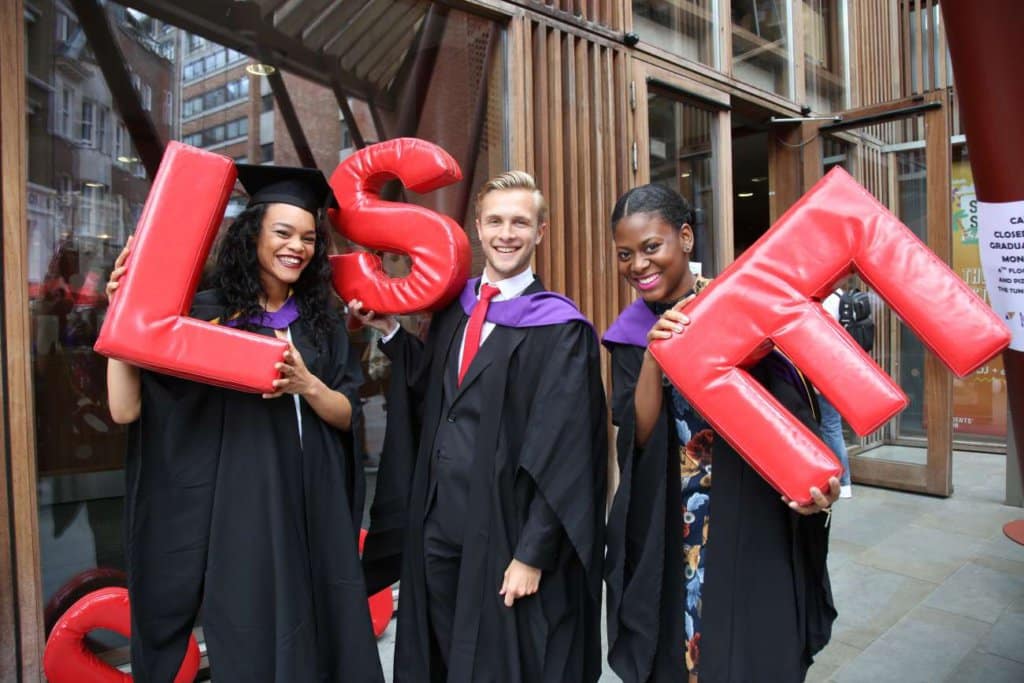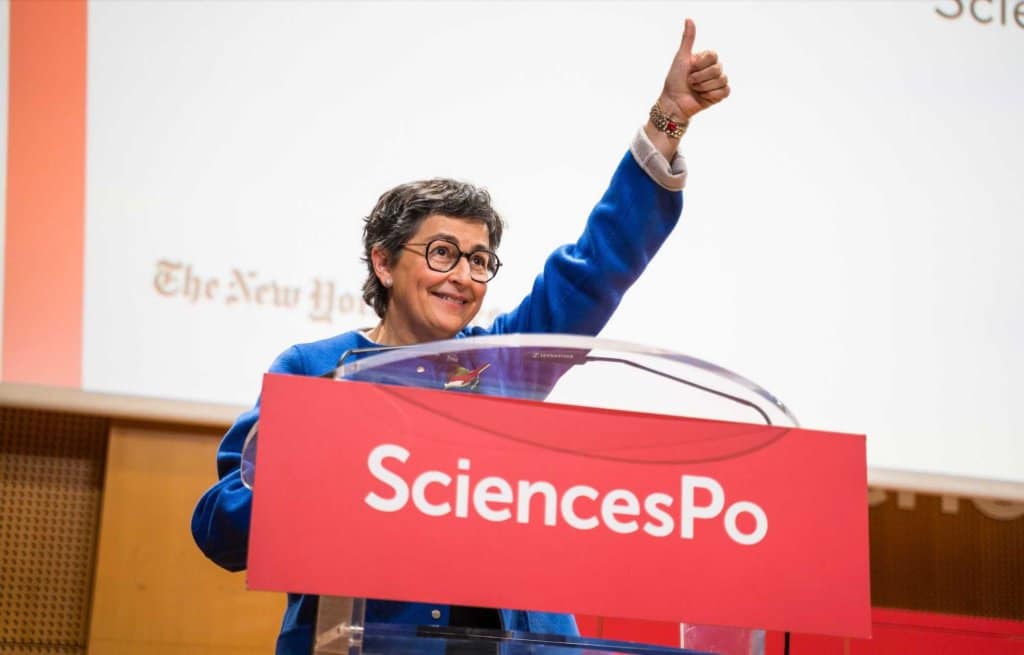
If you’ve ever wondered what motivates people to behave in specific ways, interact, and influence the world, you should consider pursuing a degree in the social sciences.
The social sciences focus on the study of society and the relationship among individuals within it. This vast field covers a wide range of disciplines — economics, philosophy, history, law, political science, archaeology, and anthropology — and opens up a multitude of career possibilities. You can become a social worker, school therapist, lecturer in economics or philosophy, or a banker.
The profound influence of graduates of the social sciences cannot be overlooked. Notable figures include Alain de Botton, a philosophy graduate who founded the School of Life YouTube channel, and Susan Diane Wojcicki, the former CEO of YouTube, who studied history and literature.
Convinced? There are many universities around the world that can help you follow in their footsteps. However, when it comes to developing employable graduates, these four picks are a cut above the rest:

Source: Charles University
Charles University
Founded in 1348, Charles University is one of the oldest universities in the world. In 2023, it is also the largest and most prestigious university in the Czech Republic. It stands out as one of the best universities in Central Europe on global rankings and boasts a remarkably diverse student body.
The Faculty of Social Sciences embodies the same excellence and diversity on all levels, with over 70 nationalities represented among its students. They offer a wide array of both broad and specialised programmes — from sociology and political and international studies to economics, finance, data analytics, and security studies. Students can opt for double degrees, joint degrees, and exchange programs, allowing them to immerse themselves in different disciplines, cultures, and environments. Guest lecturers from all over the world enhance the international focus of these programmes even more.
The faculty stands out for its emphasis on interdisciplinarity. Aside from mandatory core courses, students can shape their curriculum by selecting courses from various faculties within Charles University. This lets them become experts in their chosen field while gaining knowledge in related disciplines.
Charles University welcomes students and staff from all nationalities, religions, gender and sexual orientation. Everyone feels included in its safe and family-like atmosphere, both in Prague and throughout the country. Students get guaranteed accommodation in university dormitories and receive comprehensive support from the International Office. The Buddy programme helps newcomers settle into their new environment, fostering an enriching overall experience.
Students have the opportunity to work whilst completing their programme. This prepares them for a future in Prague and beyond — thanks to a dedicated career advisors who help students gain practical experience and explore potential career paths with the many international companies that have offices in the city. To learn more about what the faculty can do for you, click here.
Yale University
Yale University is the third oldest higher education institution in the US and is renowned for its strong reputation in academics and first-class research. It has consistently been recognised for its excellence and is currently ranked 18th in the QS World University Rankings 2023.
Yale offers a comprehensive range of social science disciplines, including Anthropology, Economics, Political Science, Psychology, Sociology, Statistics and Data Science, African American Studies, American Studies, and more. While each programme has its unique focus, each equips students with the necessary skills and knowledge to thrive in a rapidly globalised and digitalised world.
The distinguished faculty members in the Social Science division at Yale University are renowned scholars and practitioners. They engage in rigorous analysis of human society and its interactions, with the goal of advancing knowledge and addressing the pressing challenges of our time.
Through their in-depth research on various aspects of human cognition, behaviour, values, health, and policy, they offer valuable insights into social issues within communities worldwide. Whether in seminars or in the field, these faculty members empower students at all levels to become active and influential leaders in our society.

LSE is part of one of the largest economic and social science libraries globally. Source: London School of Economics and Political Science
London School of Economics and Political Science
Ranked fifth in the world for social science and management, the London School of Economics and Political Science (LSE) is globally recognised as the leading specialist social science university.
LSE offers a wide range of over 40 undergraduate social science degree programmes, preparing students for impactful roles that shape the world. Through specialised undergraduate and postgraduate programmes, executive education, distance learning, and summer schools, LSE offers a rigorous social science education that satisfies intellectual curiosities as effectively as it prepares them for a changing world. For example, the BA History takes you on a journey that starts from the fifteenth century to the twenty-first century. You’ll explore political, economic, social and cultural developments within states as to the relations between them.
“My programme has a great variety of courses, both in general history and in the history of specific areas. You can also take an outside option, which allows you to learn about an area that you were interested in but had never thought to study,” says student Jamie Pelling. “LSE is a great place to learn – a combination of interesting courses, enthusiastic teachers (among the best in the world!) and a wide range of teaching resources and materials. My Department has a great support network, and the teachers are always willing to help and give advice.”
LSE’s esteemed academics conduct impactful research. Professor Ken Shadlen explored how technology transfer for COVID-19 vaccine production looks like in practice while Dr. Siva Thambisetty was involved in negotiations over the UN High Seas Treaty. There are many more faculty members who double as advisors to international organisations and governments and who offer expert opinions on current events.

Science PO equips future decision-makers with the essential skills required to serve the public interest. Source: Sciences PO
Sciences PO
Sciences Po is a renowned research university in the field of social sciences, known for promoting collaboration between leading researchers and practitioners. With a dynamic academic community comprising over 4,000 academics, including 2,400 practitioners, the university ensures that students benefit from innovative research and establish real-world connections.
Sciences Po’s unique curriculum is multidisciplinary, combining rigorous research with a focus on contemporary issues. The goal is to equip future decision-makers with the essential skills required to serve the public interest.
The Sciences Po bachelor’s degree programme is taught on seven campuses, encompassing six core courses in law, economics, humanities, history, political science, and sociology, along with additional courses in arts and science disciplines. You’ll cover topics like regimes and power relations, while getting a sound understanding of economics, from its historical elements to current policy debates. Students will also have exposure to subfields in the discipline: political sociology, area studies, international relations, public policy, comparative politics, political institutions and organisations, political theory, and political economy.
This degree programme, known as the Undergraduate College, aims to provide students with a comprehensive understanding of complex societies and the world through a multidisciplinary approach in the humanities and social sciences.
After three years, students graduate with a Bachelor of Arts and can pursue a master’s programme at Sciences Po or another institution in France or abroad, or they can enter the workforce immediately. “Sciences Po gives you the freedom to build your own academic and professional path, from your bachelor’s until your master’s degree,” says graduate Juan Cristellys from Spain.
Fellow graduate Hugo Ribadeau Dumas, who now works at KPMG in Delhi as an advisor to the Government of India, agrees. “The most useful skill I received from my education at Sciences Po is intellectual discipline. Whether it is in terms of analytical thinking or writing skills, Sciences Po definitely taught me how to be as rigorous as possible,” he says. “Sciences Po helped me to become a very versatile professional, capable of working on a variety of issues in different roles.”
*Some of the institutions featured in this article are commercial partners of Study International







